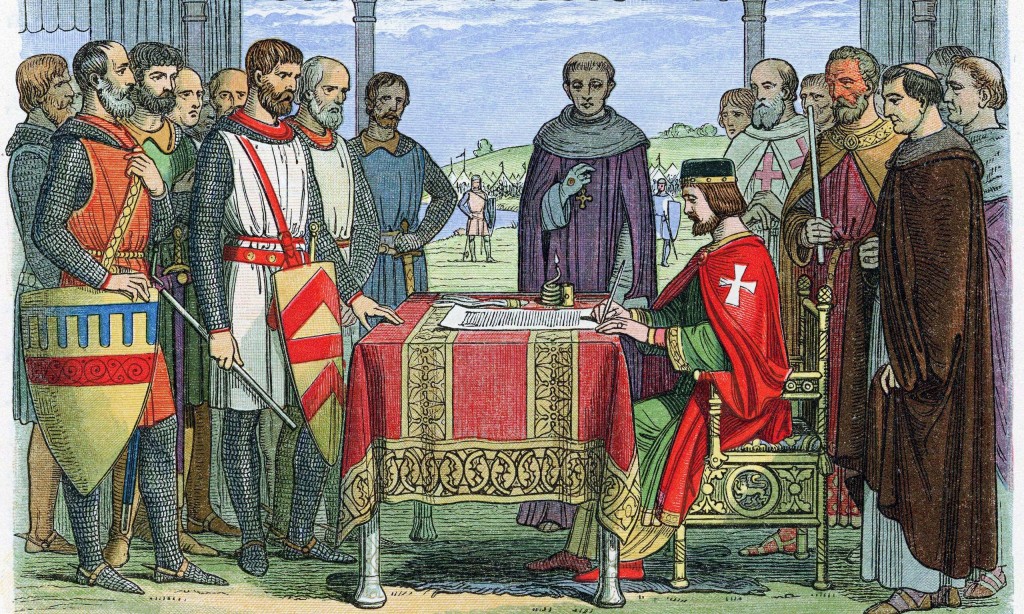It’s now been 800 years since the original Magna Carta was issued. You surely know that “Magna Carta” is Latin for “Great Charter,” and you probably also know that Magna Carta is a big deal in the annals of law and history. Beyond that, you might have forgotten (or never learned) what Magna Carta was and why we should care.
Law Talk to the rescue!
Magna Carta was drafted in June of 1215 by Stephen Langton, Archibishop of Canterbury, and issued by King John of England as a quasi-treaty to appease rebel barons in a meeting at Runnymede, about 15 miles east of London.
The charter’s 3,500 words in Latin, written on a calfskin parchment, didn’t succeed in preventing war : both king and barons violated it, Pope Innoncent III annulled it 9 weeks later, and the First Barons’ War followed, leading to the occupation of England by France. Yet this unsuccessful treaty succeeded in establishing an important and enduring principle: everybody, even the king, is subject to the law, which means that everybody, even the lowly commoner, is protected by the law.
The principle took a long time to take hold—for centuries, it was important more for its symbolism and its inspiration than for its practical effect on limiting royal powers and ensuring the rights of commoners. But eight hundred years later, the following clause is still a fundamental part of English law:
No free man shall be seized or imprisoned, or stripped of his rights or possessions, or outlawed or exiled, or deprived of his standing in any other way, nor will we proceed with force against him, or send others to do so, except by the lawful judgement of his equals or by the law of the land.
To no one will we sell, to no one deny or delay right or justice.
You can see that clause’s influence on the first 10 amendments to the US Constitution (the “Bill of Rights”), the Universal Declaration of Human Rights, and the European Convention on Human Rights. They all lead back to 1215.
For more information, see the British Library website.
Finally, enjoy the following video, in which Prime Minister David Cameron, in a 2012 interview with American late-night interviewer Dave Letterman, succeeds in making Magna Carta history funny.
The illustration above showing King John issuing Magna Carta at Runnymede is a 19th-century woodcarving. Photograph: Universal History Archive/Un/REX

